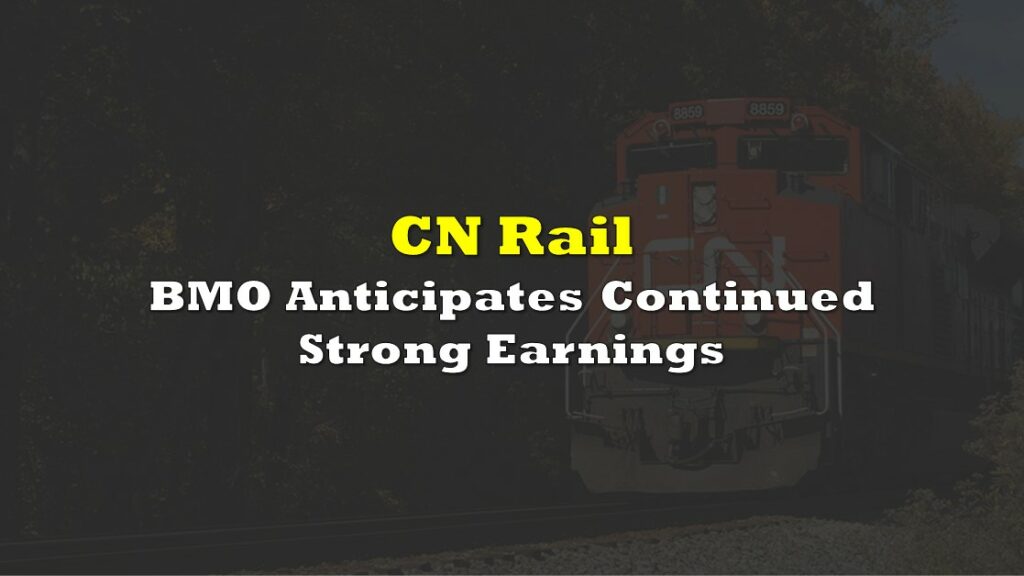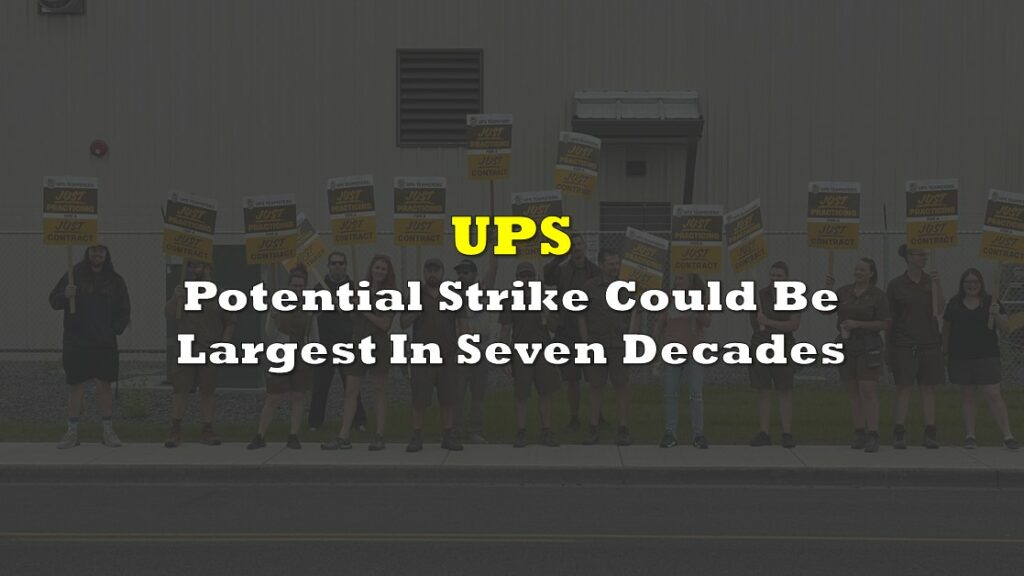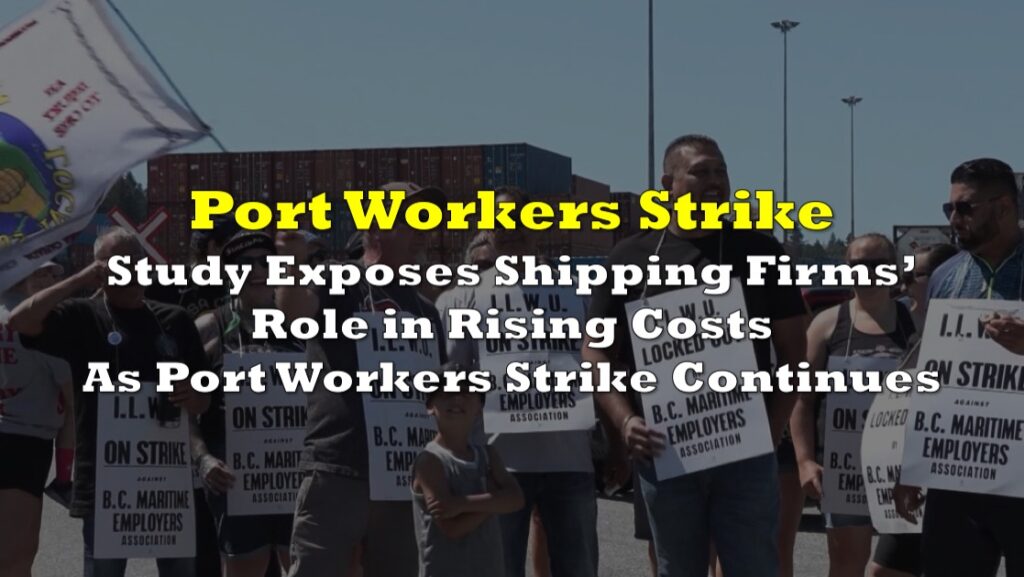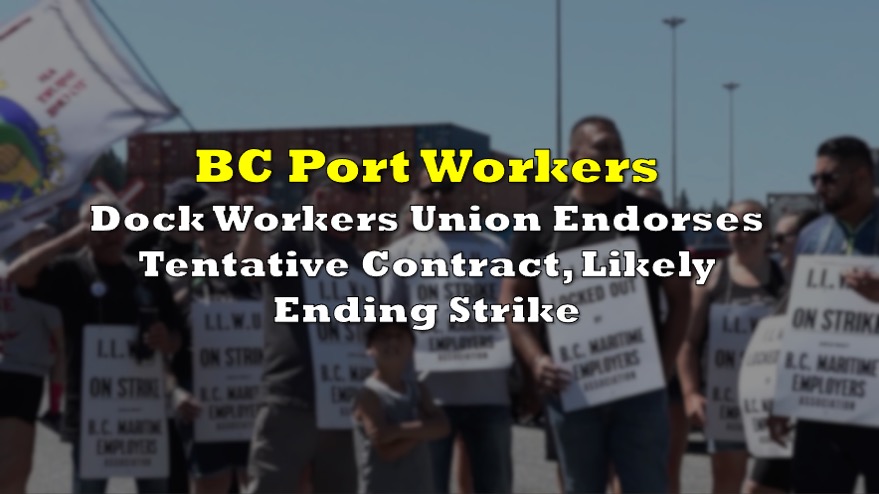Canada’s vital supply chains face an impending disruption as labor tensions escalate between two of the country’s largest railway operators and their workers. Over 9,000 employees at Canadian Pacific Kansas City Ltd. (TSX: CP) and Canadian National Railway Co. (TSX: CNR) could find themselves on strike or locked out as of Thursday, threatening to upend the movement of goods across the country.
The Teamsters Canada Rail Conference (TCRC), which represents a significant portion of these workers, has issued a 72-hour strike notice to CP, warning that unless a last-minute agreement is reached, a strike will commence at 12:01 a.m. Eastern Time on Thursday.
In a swift response, CN Rail has issued a lockout notice for the same time, indicating that unless an agreement or binding arbitration is achieved, it will begin a phased shutdown of its network.
“Unless there is an immediate and definite resolution to the labour conflict, CN will have no choice but to continue the phased and progressive shutdown of its network which would culminate in a lockout,” the company said in a statement.
Stalled negotiations
Despite extensive negotiations over the weekend, both companies have reported little progress in bridging the gap with the union. CN Rail has described the talks as “very far apart,” leaving little room for optimism as the deadline approaches. The stakes are high, with CN Rail emphasizing that its progressive shutdown is a necessary precaution to “ensure the safety of the communities in which we operate and the safety of our customers’ goods.”
CP has similarly been winding down its operations in anticipation of the potential work stoppage, including halting the shipment of goods that require cooler temperatures, such as meat and medicine. These preemptive measures underscore the critical role these railways play in Canada’s economy.
According to the Railway Association of Canada, more than half of the country’s exports travel by rail, with the lines carrying over $1 billion worth of goods each day.
The dispute
At the heart of the dispute are disagreements over the terms of the collective agreements. The TCRC has accused CP of unilaterally changing the terms of the agreements, stripping workers of essential protections, and effectively forcing the union’s hand in issuing a strike notice.
Paul Boucher, President of the TCRC, expressed the union’s frustration, stating, “We do not take this decision lightly, but CP’s reckless actions have forced our hand.”
CP, however, disputes these claims. Patrick Waldron, a spokesperson for the company, described the union’s accusations as a “gross misrepresentation of the truth,” emphasizing that the current negotiations are focused on a “status quo-style contract renewal.”
The company maintains that its offers have been fair, including competitive wage increases and compliance with new regulatory requirements for worker rest.
CN Rail has faced similar challenges in its negotiations with the TCRC. Since January, the company has presented multiple offers aimed at improving safety, wages, and work-life balance for its employees, all of which have been rejected by the union.
The latest offer, made in May, proposed a simplified agreement with improved wages and predictable days off. CN Rail’s subsequent offer to enter binding arbitration was also refused by the union, leaving little hope for a resolution before the looming deadline.
Industry impact
The federal government, through Labour Minister Steven MacKinnon, has been closely monitoring the situation but has so far resisted intervening in a way that could force a settlement. On Thursday, MacKinnon rejected CN Rail’s request to impose binding arbitration, urging both parties to return to the bargaining table and negotiate in good faith.
In a statement on X, MacKinnon emphasized the importance of continued negotiations, even as the clock ticks toward the Thursday deadline.
“I urge the parties to fulfill their responsibility to Canadians and reach agreements at the bargaining table. Workers, farmers, businesses and all Canadians are counting on them,” he wrote.
CPKC & CN continue to negotiate with Teamsters in Calgary and Montréal alongside federal mediators.
— Steven MacKinnon (@stevenmackinnon) August 18, 2024
I urge the parties to fulfill their responsibility to Canadians and reach agreements at the bargaining table. Workers, farmers, businesses and all Canadians are counting on them.
Industry groups have expressed deep concern about the potential impact of a work stoppage. Manufacturers and other businesses reliant on rail transportation fear increased expenses and significant delays in the delivery of critical goods. With embargoes already in place for sensitive shipments and further restrictions anticipated, the ripple effects of a strike or lockout could be felt across multiple sectors of the economy.
As Thursday approaches, the tension between the rail companies and the union shows no sign of easing. Both sides remain entrenched in their positions, with the union accusing the companies of jeopardizing the Canadian economy to protect their bottom lines, while the companies argue that they are offering fair terms that the union refuses to accept.
Should the strike or lockout proceed, the consequences could be severe, not only for the workers involved but also for the broader Canadian economy. It could cost the Canadian economy up to $1 billion per day, based on the fact that Canada’s railways carry more than $1 billion worth of goods daily, according to the Railway Association of Canada.
Information for this briefing was found via Pique News Magazine and the sources mentioned. The author has no securities or affiliations related to this organization. Not a recommendation to buy or sell. Always do additional research and consult a professional before purchasing a security. The author holds no licenses.









